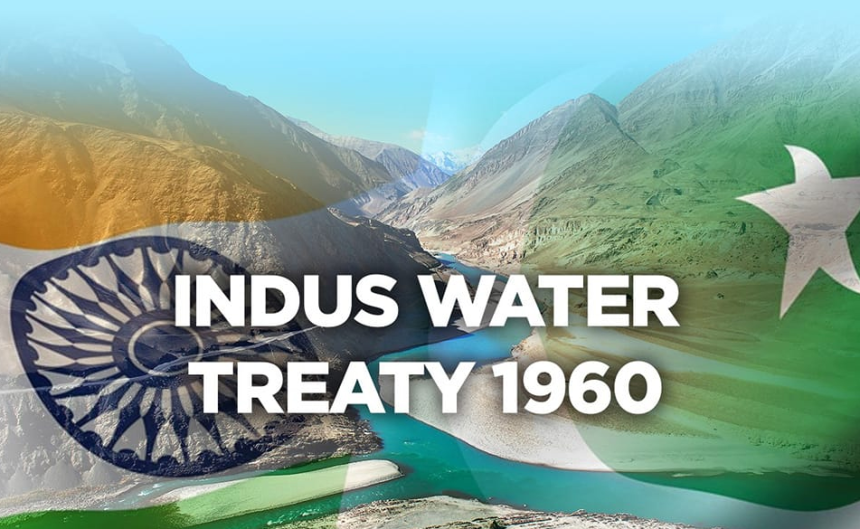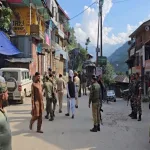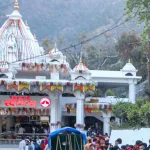FRAGRANCE OF IDEAS
Ever since the onset of civilizations on this planet thousands of years ago, the rivers played the most crucial role. All successful and historical civilizations were established on the banks of rivers. These rivers were considered as the lifeline of the civilizations as a whole. In the Indian context, due to the overwhelming significance of the rivers, they were treated as deities and goddesses and also worshipped by the people since ancient times. People generally treated their rivers as divine-mother-incarnate and developed a great amount of reverence and respect for them.
From the great Himalayas to the vast Indian Ocean, hundreds of big and small rivers and their tributaries flow unabatedly in this huge mass of land converting it into the most fertile, green and beautiful place to live on. They contributed to the green environment, ecological balance and the economic development of the whole region. These rivers carved out a special identity of India throughout the world and there is no concept of India without the existence of these great rivers of the land. These rivers were and are the biggest reason for the successful story of our agricultural produce. They have been catering to the food needs of billions of people in India, in neighboring countries and also in distant neighborhoods where food items are exported every year.
When Britishers decided to leave India in 1946-47, they also decided to divide India into two new nations. With the emergence of India and Pakistan as the new nations in 1947, some issues remained unresolved which included the issue of the rights on the flow of the waters of the rivers. Consequently in 1960, the governments of India and Pakistan entered into an agreement called “Indus Water Treaty” (IWT) and it was signed by the Prime Minister of India, Pt. Nehru and the President of Pakistan, Ayub Khan in Karachi, Pakistan.
The Treaty, called IWT, included six major rivers of north India and their tributaries flowing westward towards the newly created Republic of Pakistan. Since all these rivers, before finally getting mingled in the Arabian sea, merge into the river Indus in the Sindh province of Pakistan, the Treaty was nomenclatured as Indus Water Treaty. The six rivers mentioned in the IWT included Indus, Jehlum, Chenab, Ravi, Satluj and Beas. The three rivers Indus, Jehlum and Chenab were called the ‘western rivers’ and the other three rivers named as Ravi, Satluj and Beas were called the ‘eastern rivers’.
Right from the word go, the IWT was, without any kind of rationale, tilted towards Pakistan. In the name of a peaceful water sharing agreement between India and Pakistan, Pandit Nehru ignored the water priorities of India and bypassed the evolving future dynamics in this regard. There is no doubt that the IWT withstood major challenges of the last six decades including three wars between the two nations, intermittent diplomatic row, internal strife and the geo-political situation, however it also created a lot of tensions over the last two decades between India and Pakistan.
From the Indian perspective, it is argued that India remained lukewarm to its rights on the usage of water of these important rivers. The treaty gave India control over the eastern rivers, while Pakistan was allocated the western rivers. India, although controlling the eastern rivers, was allowed limited agricultural and non-consumptive uses on the western rivers. On the other hand, Pakistan received 80% of the water resources to the detriment of the Indian interests.
Pakistan would oftenly raise objections to the usage of water flow by India, particularly in regard to the western rivers and thus activate the redressal mechanism under the Treaty. An important part of the treaty is the creation of the Permanent Indus Commission (PIC), which comprises representatives from both India and Pakistan. The Commission facilitates yearly meetings, overseeing the monitoring compliance and the sharing of information including data exchange. PIC is considered as the first grade of dispute resolution system between the two countries in regard to the Treaty. The World Bank, formerly Bank for Reconstruction and Development, is responsible for setting up the other higher platforms for resolution of the issues in case they are not settled at the PIC level. These are Neutral Experts appointed by the World Bank to address technical disagreements and the Court of Arbitration which is a higher grade of resolution for issues that remain unresolved through former steps.
Since 2005, Pakistan has been raising objections to India’s right to develop run-of-the-river hydroelectric projects on the western rivers. Initially, issues were raised about the Baglihar project on Chenab, then on Kishanganga and Ratle Hydroelectric projects in Jammu and Kashmir state. Though India reserves the right to develop run-of-the-river hydroelectric projects on the western rivers, yet Pakistan in 2013 invoked the intervention of the Court of Arbitration regarding the Kishanganga project. The Court however decided in favour of India but Pakistan’s stance over the last one to two decades in this regard has surely fueled tensions to the prevailing situation.
Keeping in view the geo-political situation, energy needs, demographic changes, carbon emission targets, cross-border terrorism, the agriculture and irrigation needs, India issued formal notice to Pakistan in January 2023, seeking amendments to the Treaty due to Pakistan’s lack of cooperation on several key issues. This was indeed a significant shift from the earlier scheme of redressal of disputes under the IWT. Unfortunately, Pakistan hasn’t responded to the notice the way India would have desired it to.
Therefore, reiterating its earlier position, India has once again sent notes to Pakistan on 30th August 2024 asking straightway for revaluation and renegotiation of the Treaty between the governments of India and Pakistan. It wants changes in the provisions of the IWT to the satisfaction of both the nations. India’s stance definitely is a departure from seeking redressal through the established mechanism under the IWT since Pakistan has refused to resolve issues and concerns of India all these decades. This has seriously put a big question mark on the future of the existing IWT.
The terror incidents of Uri, Pathankot, Pulwama and the continuous other cross-border terrorism incidents in Jammu and Kashmir have already created situations in which the government of India has vigorously followed the policy of “terror and talks won’t go together” in relation to Pakistan. The Indian Prime Minister, Narendra Modi has also made a significant statement that “water and blood can’t flow together” conveying reconsideration of the Indus Water Treaty as a whole. It also declares India’s preparedness for a more assertive position so far as its rights on the water flow of the eastern rivers are concerned.
The Indian government might be seriously planning to develop a network of canals to use the flowing waters of the eastern rivers by exercising its rights on the rivers. In fact, it should have been done immediately after the enactment of the Treaty but the then governments consistently failed to do that all these decades. For India, the serious concerns also include the threat of climate change, melting of ice glaciers in the higher Himalayas, future water scarcity and also the sustainability of the river basins. India’s moves, including plans to divert water from the eastern rivers to utilize its share of water fully and develop new infrastructure, underscores its logic to assert its rights. Unfortunately, the IWT does not have any sort of provisions to deal with the emerging environmental and climatic concerns of the future.
Time is set for revisit to the Indus Water Treaty as a whole and India seems this time determined to get it done. Both the governments will need to ultimately sit together to make appropriate amendments to the Treaty. In absence of any kind of provisions of the Treaty dealing with the new emerging situations, the present format of IWT is destined to add confusion to the already tense relations between the two countries. In the interest of the welfare of the people on both sides, it is hoped that good sense prevails upon Pakistan to come to terms to review and renegotiate the Treaty so that India is not compelled to take any unilateral action in this regard in the near future.
(The author is a senior BJP & KP leader, human rights defender, author and columnist and can be reached at: [email protected])
Box: In absence of any kind of provisions of the Treaty dealing with the new emerging situations, the present format of IWT is destined to add confusion to the already tense relations between the two countries. In the interest of the welfare of the people on both sides, it is hoped that good sense prevails upon Pakistan to come to terms to review and renegotiate the Treaty so that India is not compelled to take any unilateral action in this regard in the near future








